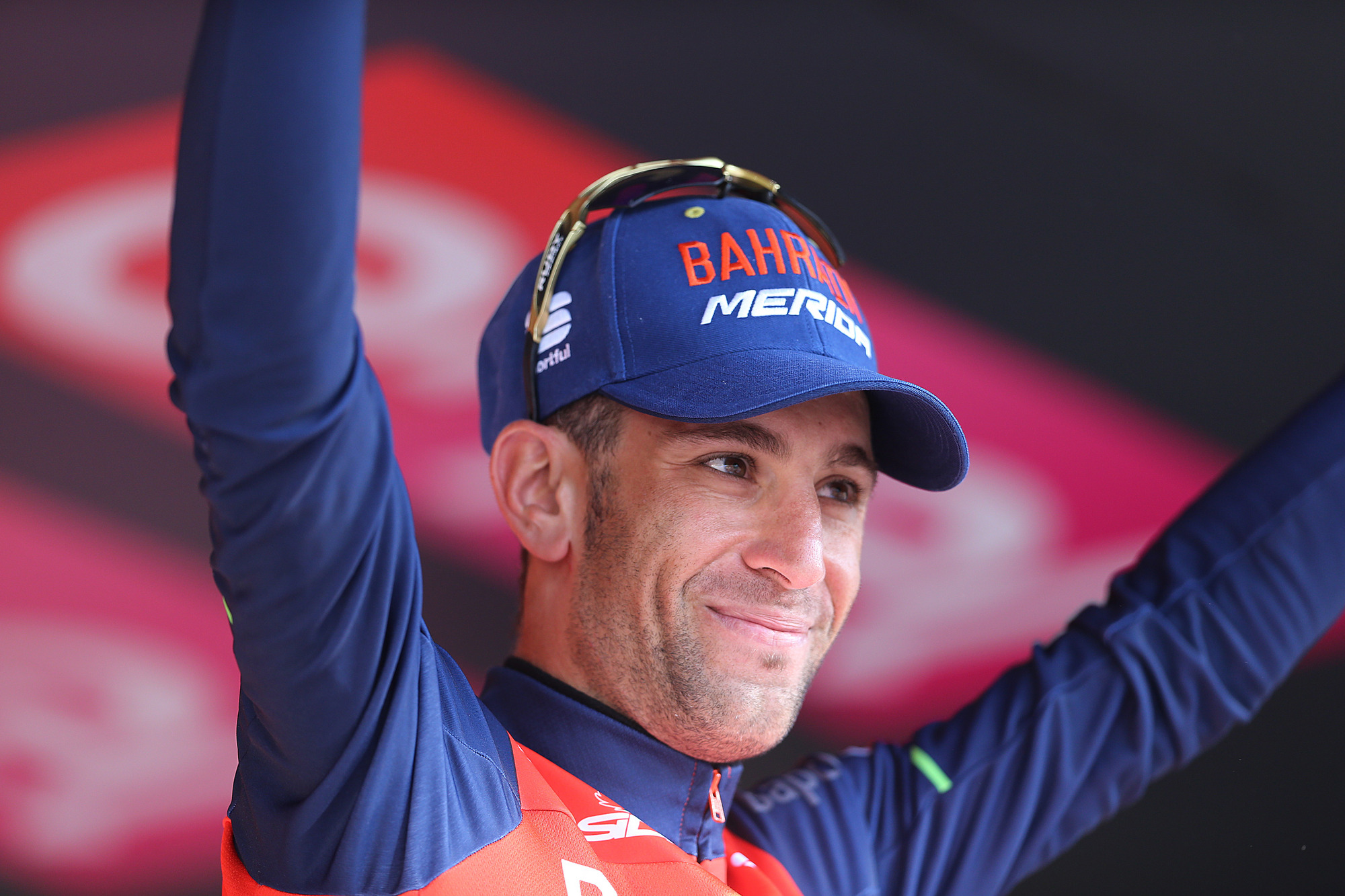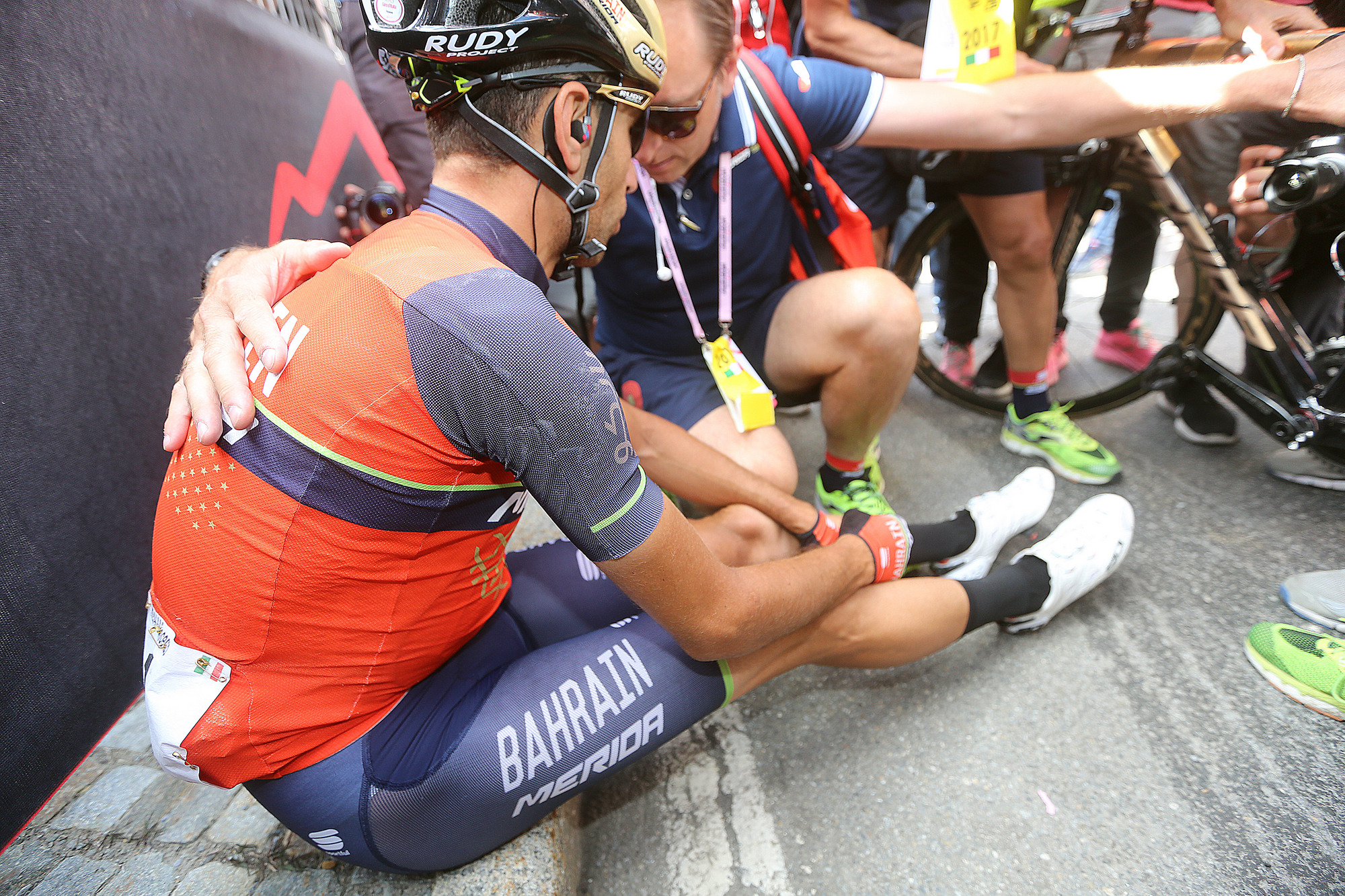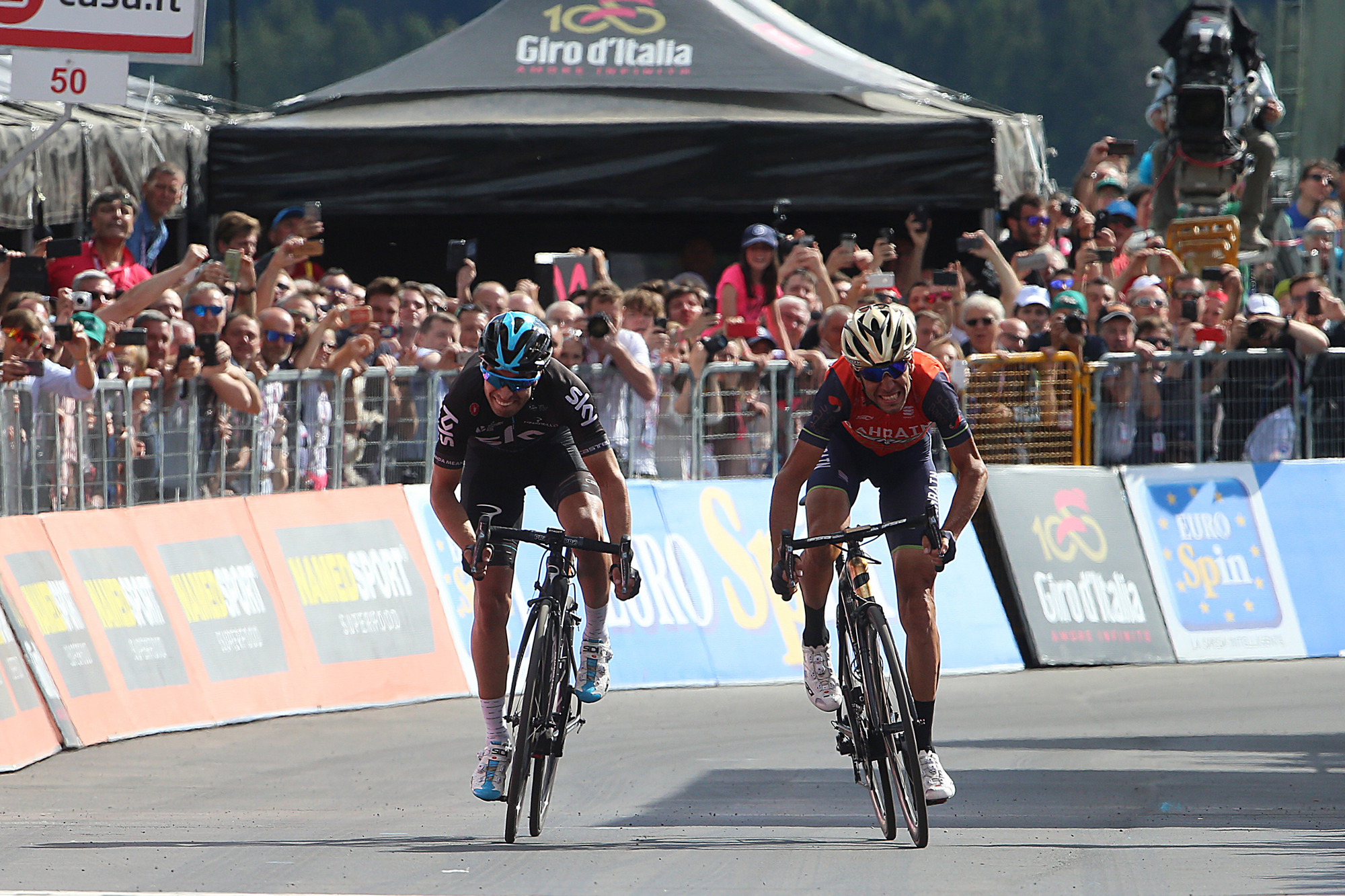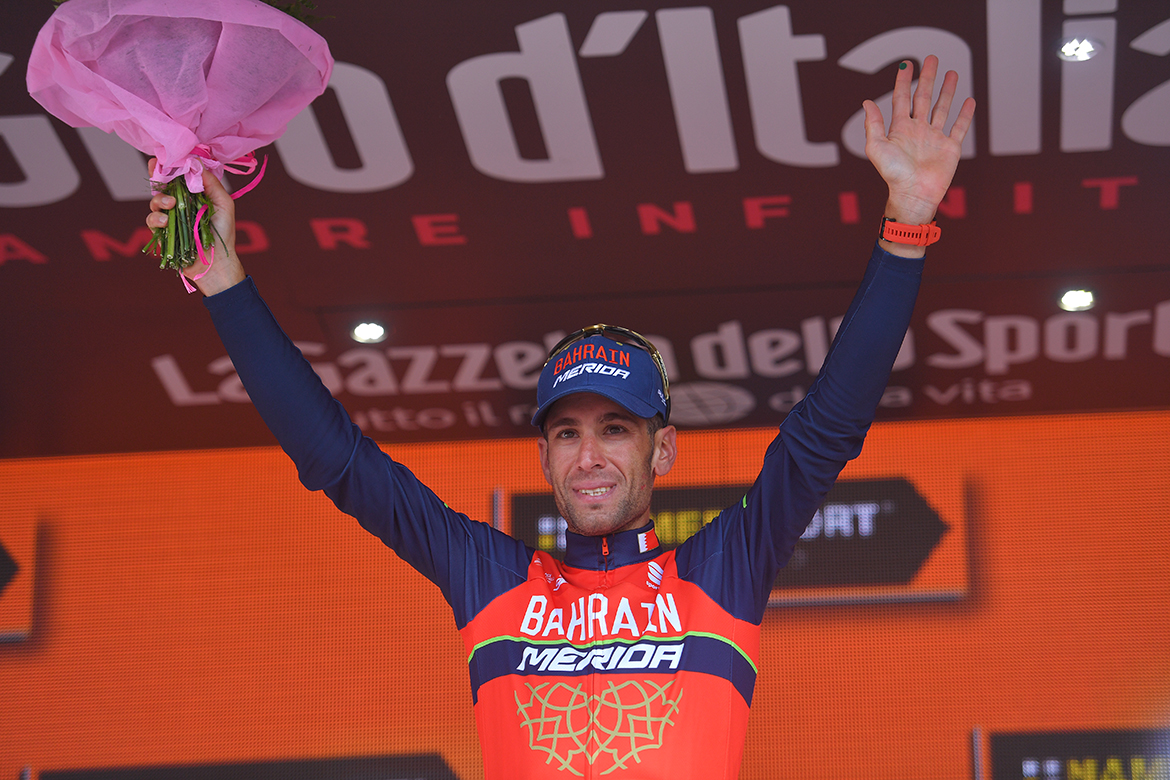Giro d'Italia: Nibali could find common ground with Quintana in Dolomites
'The energy you have left at the end will be crucial,' says Bahrain-Merida leader





On the upper reaches of the Swiss side of the Stelvio, a little shy of 2500 metres above sea level, Vincenzo Nibali's Giro d'Italia finally began. For more than two weeks, the Bahrain-Merida leader was always up there, yet never quite where he needed to be. A victory in Bormio on Tuesday's stage 16 has changed all of that.
Four days from the end of the Giro, Nibali is suddenly just 1:12 off Tom Dumoulin's overall lead, and only 41 behind the second-placed Nairo Quintana (Movistar). He overturned a heftier deficit in less time a year ago, and though the opposition is loftier this time around, at least by reputation, Nibali's general condition and morale through the opening acts of this Giro have been notably higher.
"It's never easy but I've always had good sensations at this Giro, even if lost time on the summit finishes, but that was when there was just one climb on the stage. We've raced well and we're happy so far," Nibali said during an appearance on RAI's Processo alla Tappa programme after the finish of stage 17 in Canazei. "The win yesterday was a beautiful one, and it's given a bit of morale to all of us. Tomorrow we can play our card again."
If Tuesday's stage, which incorporated the Mortirolo and twin ascents of the Stelvio, was deemed to be the Giro's tappone, then a new superlative might just be required for Thursday's demanding leg through the Dolomites to Ortisei. No fewer than five climbs are shoehorned into just 137 kilometres of racing, as the Giro tackles the Pordoi, Valparola, Gardena, Passo di Pinei and Pontives. If Nibali and Quintana don't manage to discommode Dumoulin, it certainly won't be because the route of this Giro didn't give them a chance to do so.
"Tomorrow's stage is one of those that wears you down, and the energy you have left at the end will be crucial," Nibali said. "It's a new climb at the end, too, and that won't be easy. Nairo, certainly, will want to do something tomorrow as well. We'll see in the race."
A working alliance
The precise nature of Nibali and Quintana's relationship has been parsed and analysed ad nauseam in the Italian press since the Giro left Alghero almost three weeks ago. Some place the source of the reported frostiness to Nibali's comments regarding Quintana's tendency to train for long spells in his native Colombia during the season, while others point to the time Quintana inadvertently caused Nibali's friend and closest gregario Valerio Agnoli to crash at the 2016 Tour de San Luis.
High on the Umbrailpass on Tuesday, when Dumoulin had been distanced after being forced into an abrupt toilet stop at the base of the mountain, Nibali and Quintana – the supposed rivals – suddenly found themselves cast together as allies of circumstance. Five kilometres from the top, when Nibali launched the two accelerations that ignited his Giro, Quintana came with him. Quick glances – and brief words – were exchanged, and a working alliance was formed on the hoof.
Get The Leadout Newsletter
The latest race content, interviews, features, reviews and expert buying guides, direct to your inbox!
Although Nibali distanced Quintana on the sweeping descent into Bormio, both men made deep fissures in Dumoulin's weighty lead. After the finish, as Quintana warmed down on rollers near the podium, Nibali made a point of approaching him and clasping him by the hand. A thaw in relations, at last temporarily. "I complimented him," Nibali explained to La Gazzetta dello Sport. "On the climb, we said we'd ride together to gain time." While Nibali and Quintana will find the terrain to their liking on stage 18 in the Dolomites, it remains to be seen whether they can continue to find common ground.
"It's clear that in the race an alliance could arise because we the same objective, for the general classification," Nibali said on Wednesday evening. "It won't be easy. Tom Dumoulin has a big advantage and he still has the time trial to come in Milan too, as I've pointed out several times. We have to try, if we have the strength to do it. We have to do it, because otherwise it would be a big regret."
Dumoulin's fine solo pursuit on the Umbrailpass only confirmed the impression that he has been, by some distance, the outstanding performer on the Giro to date, while Nibali's aggression and victory in Bormio suggested that his form is in crescendo as the race reaches its final act. Quintana's form, however, is less certain. Impressive though he was in soloing to victory on the Blockhaus, he was humbled on his own terrain at Oropa.
Tuesday's stage was even less conclusive, as Movistar sent men up the road early on to lay the groundwork for a Quintana offensive that never materialised on either ascent of the Stelvio. "We wanted to cause a bit of chaos," Movistar manager Eusbio Unzué said unconvincingly. Nibali, however, warned that Quintana's threat is undiminished.
"Quintana is always the same, he's always strong," Nibali warned. "Yesterday's stage was almost six and a half hours long. It was a very hard stage with 5,000 metres of altitude gained. When there are a lot of climbs like that, it's harder to accelerate, harder to eat, so it's about how you manage yourself to make sure you get to the finish with enough strength left. Even a single acceleration can be dangerous, because you can suddenly go from feeling well to feeling badly."
As Nibali knows only too well, something similar might be true of Thursday's stage to Ortisei.

Barry Ryan was Head of Features at Cyclingnews. He has covered professional cycling since 2010, reporting from the Tour de France, Giro d’Italia and events from Argentina to Japan. His writing has appeared in The Independent, Procycling and Cycling Plus. He is the author of The Ascent: Sean Kelly, Stephen Roche and the Rise of Irish Cycling’s Golden Generation, published by Gill Books.